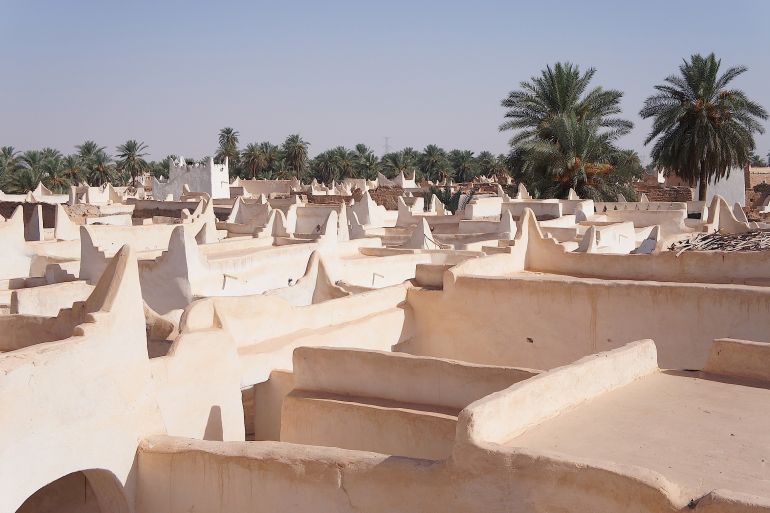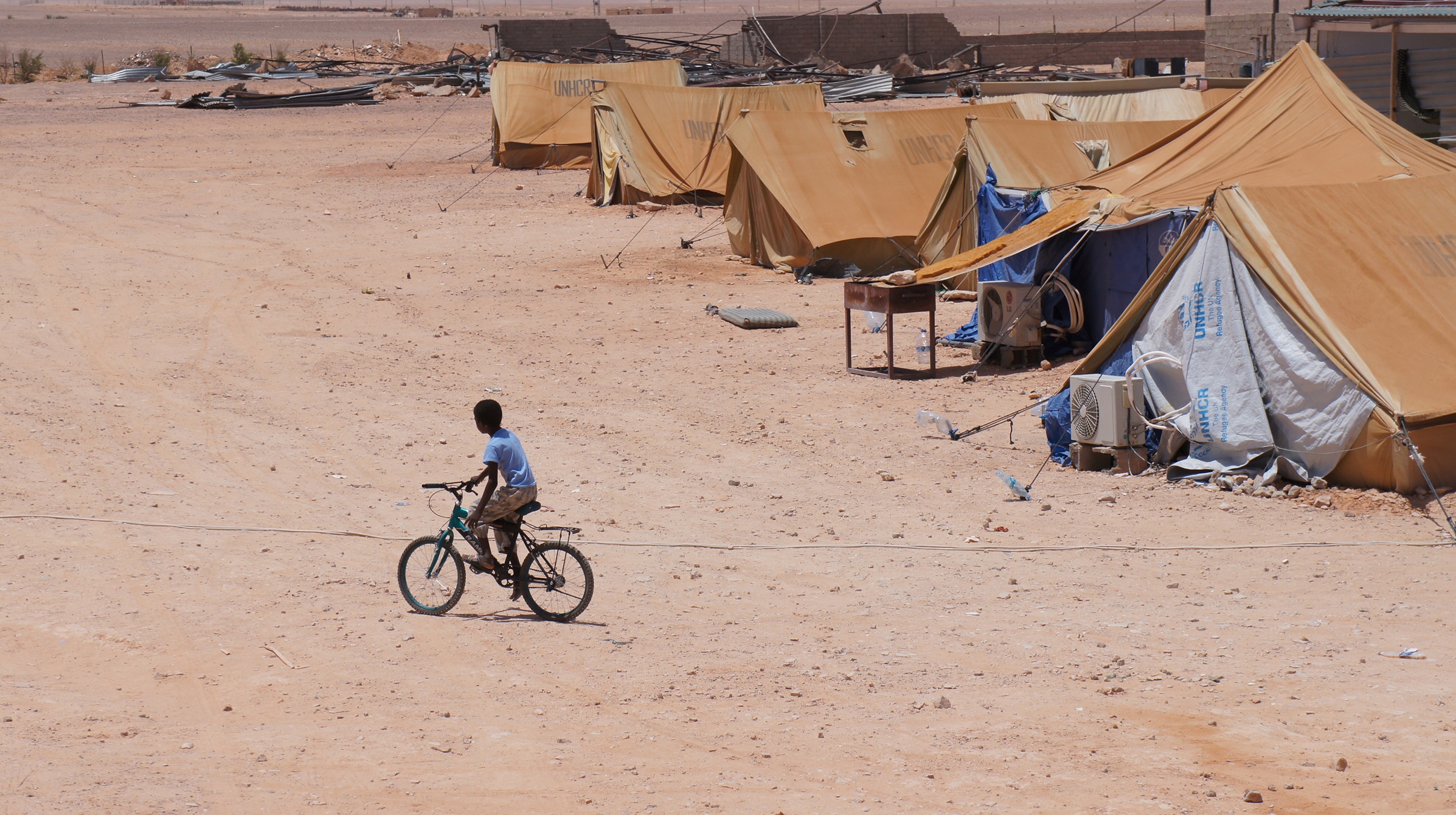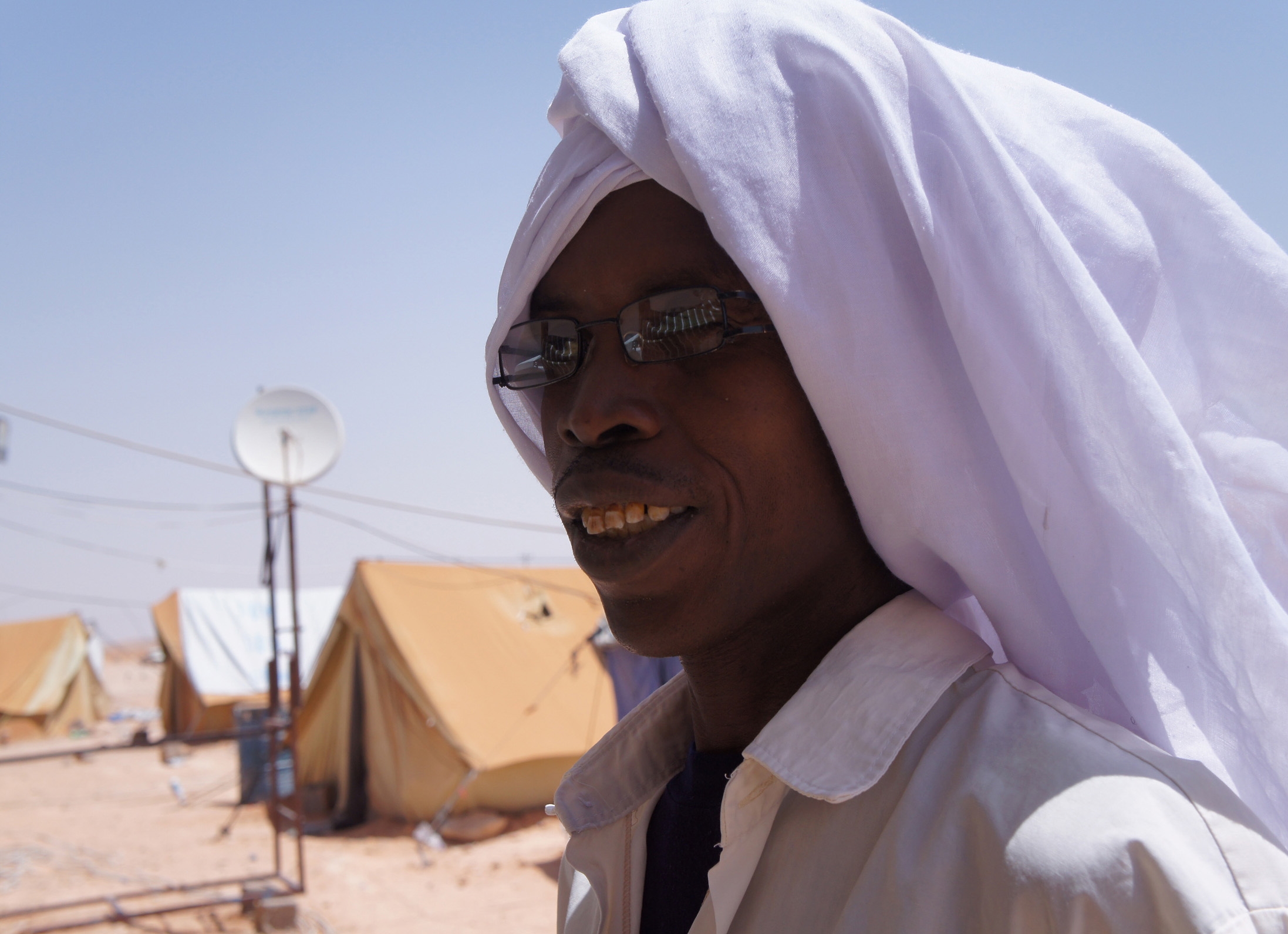Tackling conflict on Libya’s margins
Violence between Tuaregs and Ghadamsi this past year has transformed this Libyan city into a fearful ghost town.

Ghadames/Dirj, Libya
– Since the triumph of Libya’s revolution, ongoing conflict simmers in the majestic Islamic old town of Ghadames on the edge of the Saharan desert.
Folded into an arc bordering Algeria and Tunisia, Ghadames is a UNESCO World Heritage Site nicknamed “The Pearl of the Desert”. Tourists once roamed the town’s ancient warren of whitewashed passageways, and camped under the stars.
From the 1970s, resident left their old town dwellings for Gaddafi’s new housing projects outside the ancient walls. Yet theowners still return to their old properties during the summer months, to benefit from the tourist trade, and to escape the sweltering heat.
The residents of Ghadames are urban-swelling Ghadamsi townsfolk, and the semi-nomadic Tuareg, the region’s desert traders whose tribal ties stretch to Algeria, Niger, Mali and Burkina Faso.
Both the Ghadamsi and the Tuareg share an indigenous Amazigh identity that was nearly crushed under Gaddafi’s uniform “Arabisation” campaign, and have lived together for generations, thriving on cross-border trade and, more recently, tourism.
But the violence this past year has transformed the ancient site into a fearful ghost town.
“Before the revolution we were living easily together,” says Abdullah Omana, a health official with the now-displaced Tuareg community in Dirj, a non-descript desert town more than 100 kilometres away.
 |
| The small town of Dirj has been overwhelmed by Tuareg refugees [Rebecca Murray/Al Jazeera] |
Yacoub Ibrahim Dawi is the new culture and civil society director in Ghadames. “I just called my old Tuareg neighbour, a teacher, who is now in Dirj,” he said. “His son was killed in an accident and I offered my condolences. He was against Gaddafi since the beginning.” Dawi added: “The problem we have are with Tuareg who are ‘wanted ones’.”
The Ghadamsi accuse the Tuareg of atrocities under Gaddafi’s rule. In turn, the Tuareg, who had been an estimated 30 per cent of Ghadames’ population of 15,000, claim they were discriminated against under the old regime, and misunderstood and marginalised since the revolution.
Both sides are at pains to point out that not all Tuareg were pro-Gaddafi, and acknowledge the Ghadamsi had its own supporters of the former regime. The town saw little fighting during the revolution.
“From the beginning the Tuareg have been left out,” explained Wafa el-Nass, an energetic grassroots activist from Tripoli who is involved in reconciliation efforts. “Many Libyan Tuareg didn’t have identification, and Gaddafi was racist towards them.”
Gaddafi reportedly promised to give the semi-nomadic Libyan Tuareg identification papers if they fought for him.
Security risk
Battles between townsfolk dangerously escalated last September and again this past May, the recent violence allegedly triggered by verbal harassment of Tuareg women outside a school.
With fatalities on both sides and Tuareg homes and livestock destroyed, many Tuareg families fled across the border to Algeria, southern Libya and en masse to the town of Dirj.
Mansour Ali Mansour, deputy head of the Ghadames military council, admitted there was only one Tuareg member among his 400-strong military brigade. “In normal circumstances the ‘thuwar’ [revolutionary rebels] comply with orders. But if an incident happens, like an attack, some of them can go out of control… They are not military professionals,” he said.
Libya’s newly elected national congress faces a huge challenge in solving such peripheral disputes across a land awash with weapons.
With security a top priority, the government wants to tamp down Gaddafi’s destructive “divide and rule” tribal politics – exacerbated by the scramble for influence in the post-revolution power vacuum – as well as the finger-pointing rhetoric of retribution.
In Ghadames, five consecutive ceasefires brokered by outside “elders” have failed. Blame is placed on the mutual distrust of both sides, a weak transitional government, and little official enforcement of the often-vague agreements.
“The context in Libya right now is fear and uncertainty,” explained Bill Lawrence, an International Crisis Group (ICG) researcher. “Those who were for the revolution fear a backlash – that it will be unravelled by various forces. Those who were not so much for the revolution fear retribution – for their lives, property and the community’s future.”
Young soldiers from Benghazi, a neutral buffer since the latest violence, patrol the narrow desert road through lonely scrubland between Ghadames and Dirj. Clashes at the mid-way checkpoint and kidnappings have occurred along this route. In May, two Ghadamsi men reportedly nabbed from a bus were found on the side of the road. They had been tortured – one to death.
Tuareg safehaven
Since May, Dirj – formerly home to around 4,000 people – has been overwhelmed with an estimated 2,200 displaced Tuareg living in overcrowded shelters and tents, according to UNHCR officials.
There is one doctor on around-the-clock call in Dirj, and the displaced rely on a few government salaries, and charities for food and essential goods.
On a nearby farm filled with tents, Tuareg elders sit in the shade to shield themselves from the draining midday heat. Hamaki, a 49-year-old father of five children, said he served in the Libyan army for 20 years. “All the people have guns in Ghadames,” he said. “Especially the young.”
 |
| Hamaki served in the Libyan army for 20 years, but now feels forced out of his hometown and has taken his five children to Dirj’s camps for refuge [Rebecca Murray/Al Jazeera] |
Hamaki’s daughter, Aisha, is a shy 14-year-old. “I was harassed in school,” she said. “People were saying all the Tuareg were with Gaddafi.” She looks down. “I lived in a nice house. Here we share a room with eight families. There is no running water, no good food and we are in the desert.”
Tuareg leaders believe the solution is to build a new Tuareg town from scratch, named Alwaal, 50 kilometres from Ghadames in a desert valley with a water source. They are furiously lobbying the government in Tripoli for funds to break ground.
“Alwaal is my dream, everyone’s dream,” said Abdullah Omana. “If the Tuareg return to Ghadames it will be back to the old system. We will remain poor and discriminated against. Before May, some Tuareg were still living there. Whenever they went to the market, the hospital or the mosque, they were harassed. There is a lot of hate,” he explained. “We want to live separately, as only Tuareg. We want to relax.”
Others doubt that such separation will promote a long-term peace.
“I am convinced the solution is not to create separate towns to resolve tensions between communities,” said Georg Charpentier, the deputy head of the United Nations Support Mission in Libya (UNSMIL). “Ghadames is very much a Tuareg town – as for the others – and they are very much part of the picture there.”
Lawrence also questions how receptive Tripoli will be to Alwaal. “When you are in a retributive mind frame, the last thing you want to do is invest in projects that are associated with the last regime.”
Negotiating a solution
At the small Ghadames hospital on the town’s outskirts, hospital director Gasem al-Manaa said, during the revolution, he was arrested by Tuareg militia. He ended up a prisoner in Tripoli’s notorious Abu Salim prison for four months. “I was a five star guest at Abu Salim. This means I was tortured. I was praying to die.”
Al-Manaa, along with other survivors from Ghadames, was released during Tripoli’s liberation. “All of us suffer long-lasting damage,” he said.
He is now a principal negotiator in talks between the Ghadamsis and Tuareg. “If you say reconciliation is ‘too soon’, that’s right. But how long do we wait? For me it’s too late. We have to do this as soon as possible, the situation is not normal.”
He blames the ceasefire breakdowns on a lack of Tuareg leadership, and believes the plan to build Alwaal is unrealistic. Leaders on both sides stress justice as critical component of reconciliation.
“We are only looking for those Tuareg who killed, who have blood on their hands. That’s it,” al-Manaa said. “But the others? We consider them innocent. Why stay in the desert? They have their homes and schools here and can live normally like before.”
In the view of ICG’s Lawrence, however negotiations will be followed by re-negotiations. “It all goes back to the political game of who is the local leader, and what kind of sway will they hold in Tripoli. And so not a lot will come out of reconciliation agreements until Libya stabilises, and develops economically and politically.”